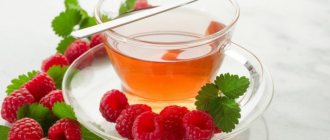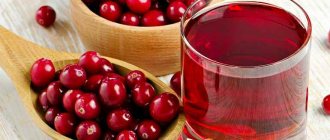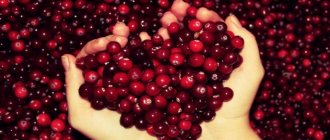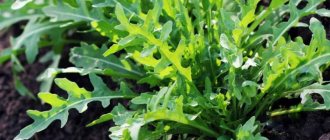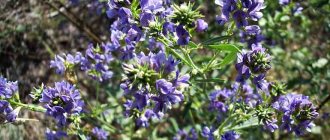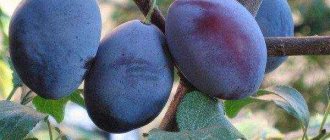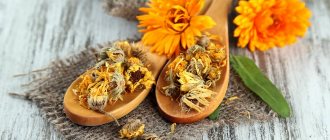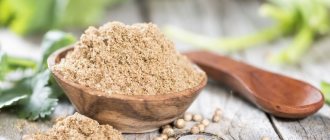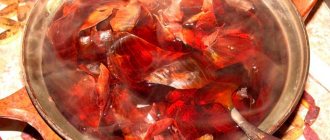general characteristics
Raspberry is a shrub from the Rosaceae family, the fruits of which are among the three most consumed berries in the world. There are more than two hundred types of raspberries and three main groups: red, black and purple.
Content:
- general characteristics
- Nutritional properties
- Benefits for the body
- Benefits of raspberry tea
- Use in folk medicine
- Raspberry oil: what is it and how is it useful?
- Possible dangers
- How to choose and store correctly
The color of red raspberries is clear from the name, although the shades may differ significantly. Of all the varieties grown commercially, European red raspberries are the most popular. Black raspberries are quite dark berries, but they are still easy to distinguish from blackberries. The purple type is a hybrid of red and black raspberries, which is especially popular in the Americas. As for the yellow berry, it is not actually a separate type, but a form of red or black.
But regarding the origin of raspberries as a specific representative of the flora, scientists have not yet found a common version. There are wild shrubs on 5 continents, and they are represented by a huge variety. There are Arctic raspberry species native to Alaska, the Aleutian Islands and Northern Asia. For some other species, the homeland is East Asia and the Hawaiian Islands. There are also species “born” in Europe or North America.
The first cultivation of the plant began in Europe about 2 thousand years ago, and trade relations contributed to the rapid spread of “cultivated” raspberries. But what pleasantly surprised scientists was the chemical composition of wild and cultivated berries. In terms of phenolic and anthocyanin content, they are almost identical. This fact refutes the opinion that wild raspberries are healthier.
Today, the richest harvests of this sweet berry are harvested in Russia, Serbia, Poland, Chile, Mexico, the USA and some other countries.
Description of the plant
Common raspberry (Latin name Rubus idaeus) is a thorny, branched subshrub plant belonging to the Rosaceae family (Latin name Rosaceae).
This plant has a perennial rhizome and numerous erect shoots 1.5-2 meters high. In the first year of life, raspberries produce green shoots, fluffy on top, and closer to the bottom covered with thin brown spines.
By the second year, these shoots become woody, the thorns on them are less frequent, flowers and then fruits form on them, after which they die, and the rhizome again throws out young shoots. Thus, raspberries have a two-year life cycle.
Raspberry leaves are alternate, compound, odd-pinnate, with 3-7 leaflets on long petioles, of which the upper ones are trifoliate, with stipules adherent to the petiole. Common raspberries bloom with small, discreet white or whitish-pink flowers with five petals and a gray-green pubescent calyx.
The flowers are collected in small corymbose-paniculate inflorescences, which grow from the axils of the leaves. The fruits are red or red-raspberry in color and are a complex berry consisting of many smaller drupes.
In wild raspberries, the fruits easily break down into small drupes, and in cultivated varieties they grow together, forming a dense, juicy berry up to 2.5-4 centimeters long, similar to a cap and easily separated from the conical receptacle.
Raspberry seeds are white-yellow, small, oval-round and hard. The flowering period for raspberries begins at the end of June, and by August the fruits and berries ripen.
Raspberry flowers are pollinated by insects, so the weather greatly affects the amount of harvest. Raspberries propagate by seeds, rhizomes, and cuttings.
Under natural conditions, raspberries are more often found on mountain slopes, along river banks, along ravines, in damp forests, in clearings, in clearings and clearings, where they sometimes form almost impenetrable raspberry thickets.
Common raspberry is a plant widespread not only in our country, but also almost throughout the globe. It is cultivated in garden plots and summer cottages in all regions, right up to Sakhalin and Kamchatka.
Nutritional properties
Raspberries are an outstanding source of phytonutrients.
It contains dozens of anthocyanins, flavonoids, phenolic acids and tannins. This berry is an excellent source of vitamins B, E, K, C, manganese, copper, magnesium, potassium, fiber and Omega acids. Nutritional value per 100 g
| Calorie content | 52 kcal |
| Carbohydrates | 11.94 g |
| Squirrels | 1.2 g |
| Fats | 0.65 g |
| Cellulose | 6.5 g |
| Vitamin B1 | 0.035 mg |
| Vitamin B2 | 0.035 mg |
| Vitamin B3 | 0.599 mg |
| Vitamin B5 | 0.405 mg |
| Vitamin B6 | 0.056 mg |
| Vitamin B9 | 21.2 mcg |
| Vitamin A | 33 IU |
| Vitamin C | 26.33 mg |
| Vitamin E | 1.44 mg |
| Vitamin K | 7.9 mcg |
| Sodium | 1.2 mg |
| Potassium | 151 mg |
| Calcium | 25.2 mg |
| Copper | 90 mcg |
| Iron | 0.71 mg |
| Magnesium | 22.3 mg |
| Manganese | 0.68 mg |
| Zinc | 0.42 mg |
| Selenium | 0.33 mcg |
| Quercetin | 12 mg |
| Anthocyanins | 20-65 mg |
| Ellagic acid | 3.39 mg (per 1 g dry matter) |
| Salicylic acid | 5 mg |
| Catechins | 83 mg |
Rich composition of vitamins and minerals
All the beneficial properties of raspberries are explained by its unique composition.
Wild raspberry fruits contain up to 10% sugars, a little essential oil, fatty oil - more than 20% (in seeds), organic acids - salicylic, tartaric, malic, citric, pectins, proteins, tannins, vitamins A, C and group B, minerals, alcohols, anthocyanins, catechins - substances that determine the antioxidant properties of raspberries and many other plants.
It is known that many forest birds and animals feed on raspberries - even large ones, like bears, and they manage to remain active and healthy. This plant is an excellent honey plant: from just 1 hectare of forest raspberry thickets you can get about 100 kg of honey.
Garden raspberries contain the same substances, just their content is different - for example, it contains more salicylic acid. Any raspberry contains vitamin C, but it is not enough, but there is a lot of iron - only gooseberries and cherries have more of it.
Raspberries are eaten fresh, with cream and milk, preserves and jams, jelly, and compotes are made from it; prepare syrups, juices, marmalade, pastilles, fillings for candies, drinks (tinctures, liqueurs, wines, liqueurs), etc.
Dried raspberries have the same medicinal and beneficial properties as fresh ones: they are best dried in attics under a metal roof, or in a warm oven (or in the oven). Store the berries in a dry place, in boxes or jars.
Benefits for the body
Rich in vitamins, antioxidants and fiber, raspberries offer many health benefits.
High concentrations of ellagic acid and phenolic compounds prevent the growth of cancer cells. And raspberry oil serves as a sun protection factor. In addition, it protects against aging and helps lose weight.
Anti-cancer properties
The concentration of antioxidants in these berries is almost the highest among other fruits. And compared to tomatoes, raspberries contain almost 10 times more of these beneficial compounds. Research has shown that the phytonutrients found in berries play an important role in reducing oxidative stress, reducing inflammation and the proliferation of cancer cells.
Benefits for blood vessels and heart
Potassium, which is part of the fruit, regulates heartbeat and blood pressure. The berries contain a lot of manganese, copper and iron - minerals necessary for the production of erythrocytes (red blood cells), and vitamin C helps restore and strengthen various tissues, including blood vessels.
Recently, American researchers stated that thanks to flavonoids (anthocyanins), raspberries reduce the risk of heart disease. Polyphenols prevent platelet accumulation and regulate blood pressure. Researchers from Harvard University followed 9,000 women aged 25 to 42 for 18 years. It turned out that women who regularly consumed berries were 32% less likely to have a heart attack.
Protection against cancer and infection
As mentioned, raspberries are an excellent antioxidant containing ellagic acid. It protects against the influence of free radicals, thereby preventing cell degeneration. Anthocyanins, which give berries their beautiful bright color, also have antimicrobial and protective properties. Under their influence, the reproduction and growth of some dangerous bacteria and fungi, including vaginal ones and those that cause intestinal irritation, slow down. And laboratory studies have proven the ability of raspberries to inhibit the growth of cancer cells in different parts of the body.
Effect on fertility
Vitamin C and magnesium, working in a complex manner, improve the fertility of male and female organisms. One theory states that the antioxidants contained in raspberries have a beneficial effect on sperm quality and also reduce the risk of miscarriage. Raspberries have a good effect on the body of pregnant and nursing mothers, and as a herbal tea it can regulate the menstrual cycle, relieve pain and reduce the intensity of bleeding. For nursing mothers, raspberries are useful for enhancing lactation.
Effect on memory
By consuming berries, you can prevent damage to brain cells and memory loss caused by age-related changes. Studies have shown that frequent consumption of berries rich in flavonoids supports the body's cognitive functions. Another discovery by scientists: anthocyanins in combination with quercetin prevent age-related memory loss.
Anti-inflammatory effect
Raspberries, which have anti-inflammatory properties, prevent damage to cell membranes. The result of this effect is protection for the heart, strengthening the immune system and healthy digestion. Recent studies have shown that ellagic acid prevents inflammation in the gastrointestinal tract. The berries have also been proven effective in relieving arthritis and gout. It is believed that raspberries have similar effects on the body as the medications aspirin or ibuprofen.
Strengthens immunity
Raspberries are rich in vitamin C, which strengthens the immune system, increases the body's resistance to diseases and the daily influence of microbes. The antioxidant properties of ascorbic acid help cleanse blood cells, thereby protecting against the “invasion” of viruses.
Benefits for the eyes
Ascorbic acid, vitamin A and phenols have a healing effect on the eyes. These substances protect the membranes that are responsible for hydrating the eye. The berry also contains ellagic acid, which is good for vision. Regular consumption of raspberries has a brilliant effect on eye health. This natural remedy will protect against macular degeneration.
Benefits for weight loss
Raspberries are a low-fat berry with a high concentration of fiber. Therefore, the calorie content of this product is low. Berries also contain a lot of water, manganese, potassium - ingredients important for effective weight loss. In particular, manganese speeds up metabolism and promotes better burning of subcutaneous fat. And in Japan, chemical compounds removed from raspberries are included in diet pills and patches.
Anti-wrinkle product
This is a magical anti-wrinkle remedy. The pulp of the berries can be used as a face mask. It also protects the skin from sunlight and UV radiation. The antioxidant properties of vitamin C effectively remove age spots and prevent skin discoloration. You can also use a homemade mask of 1 cup of natural yogurt and 2 cups of fresh raspberries as an anti-wrinkle remedy. The ingredients are mixed and applied to the face for 15 minutes.
Application of raspberries
The fruits are used for colds and inflammation of all parts of the respiratory tract as an addition to antimicrobial drugs. Free salicylic acid gives raspberries an antipyretic and diaphoretic effect.
Prepare tea with raspberries for colds from 1 tbsp. l. dry fruits and 250 ml. boiling water Leave covered for several hours. Take 1 glass warm every hour.
Making homemade raspberry syrup:
- 1 kg. washed ripe raspberries are crushed in a bowl with a fork.
- Add 5 tbsp. l. brown sugar.
- Leave the mixture in the refrigerator for 24 hours.
- Squeeze the juice out of the mass, add honey (4:3).
- Cook over low heat until thickened.
Store the product in the refrigerator. Use syrup when the temperature rises - 1 tsp. for a cup of hot tea or herbal infusion.
Raspberry honey is taken for fever to improve well-being during illness.
Not only the fruits are good for health, but also the leaves, shoots, flowers and rhizomes. The infusion is prepared from 2 tsp. dried leaves and 250 ml. boiling water Let it brew for 10-15 minutes, filter.
Gargle with the infusion for a sore throat, take orally for diarrhea, uterine bleeding, and intestinal inflammation.
For gastrointestinal diseases, diabetes mellitus
Raspberries are useful for gastritis with low acidity of gastric juice. If the acid content in the stomach is high, it is necessary to reduce the consumption of foods rich in organic acids.
Raspberries are used for pancreatitis in the form of fresh fruits and juice. These products help with diseases of the pancreas and other digestive organs, accompanied by vomiting, inflammation, and pain.
Raspberries and berry juice can be consumed without added sugar. The fruits taste sweet, although they are relatively low in simple carbohydrates. The glycemic index of raspberries ranges from 25 to 40 units (depending on the variety).
GI is approximately 1.8 times lower than that of strawberries and blueberries. Raspberries are ideal as a snack for diabetes. Berries are good for digestion and contain valuable ingredients for metabolism.
For weight loss
The fruits are used in dietary nutrition. Berries contain a lot of fiber, so they quickly fill you up. Raspberries are useful for weight loss as a low-calorie dessert.
Replenishes phytonutrient reserves in the body, which are reduced due to poor nutrition. Raspberry juices and smoothies help keep you slim.
Raspberry ketone (rheosmin) helps in the fight against extra pounds.
Synthetic rheosmin is a food additive used in perfumery and confectionery production. This substance is taken by obese people, but serious studies have not been conducted confirming its fat-burning properties. One trial found that raspberry ketone reduced appetite in rodents.
Benefits of raspberry tea
Raspberries are one of the most popular berries in the world.
But many people forget that tea made from the leaves of this bush is no less beneficial for the body. Scientists have also found many beneficial components for humans in this greenery. Here are some of these benefits:
- Rich in nutrients. Raspberry leaves contain vitamins A, B, C, and E, as well as potassium, phosphorus, calcium and many other components. Tea made from the leaves will strengthen the immune system and replenish the body's reserves of many important chemical components.
- Women Health. This herbal tea is useful for women, in particular, it tones the pregnant body, improves blood circulation, prevents morning sickness, and has a beneficial effect on the development of the fetus. The ability of raspberry leaves to influence hormonal levels and improve the reproductive abilities of the female body is also known.
- Digestion. Another benefit of raspberry tea is that it is good for the digestive system. Diarrhea, stomach cramps, ulcers - these and other disorders can be solved with a drink made from raspberry leaves.
Raspberry tea recipe
To prepare this amazing drink, you need to pour boiling water over several fresh leaves and leave for 5 to 10 minutes. To improve the taste, you can add lemon and honey to the drink.
But excessive consumption of this tea in some cases can cause hypotension, nausea, diarrhea and darkening of the stool.
Harm and contraindications
In some cases, raspberries can cause harm to our body. Side effects and at the same time contraindications include:
- Allergic reactions. Allergopathology, as a rule, is of a pronounced systemic nature (anaphylactic shock, angioedema).
- Exacerbation of chronic diseases of the digestive tract. Raspberries cause irritation of the mucous membranes of the gastrointestinal system (due to the presence of extraactive substances in the composition) and can aggravate the course of gastritis, duodenitis, gastric and duodenal ulcers.
It is recommended to approach the consumption of raspberries with caution due to the presence of a small list of contraindications.
Use in folk medicine
In folk medicine, raspberries are one of the most popular phytocomponents. The most common use of these berries is as a cure for fever and colds. But there are other ways to use the healing properties of this plant:
- to reduce blood glucose levels in people with diabetes;
- as a cure for cancer;
- for the treatment of oral ulcers;
- as a remedy for sore throat (brew tea to gargle);
- for the treatment of diarrhea;
- to prevent miscarriages;
- for the treatment of respiratory system organs;
- to strengthen blood vessels;
- for kidney treatment;
- as a remedy for acne;
- as a cure for scurvy;
- for the treatment of sore eyes.
In Rus', a brew was prepared from raspberries and cranberries, which our ancestors used as a healing tea, which, they believed, treated almost all diseases. The ancient Russians used all parts of the plant as medicine: flowers, leaves, berries and even the root.
Dried raspberries - beneficial properties
I will not repeat myself about the beneficial properties of raspberries, I will only add that the healing effect of dried raspberries in some cases is even greater than that of fresh or jam. It is worth noting that the beneficial substances in dried raspberries are more pronounced. It’s not for nothing that our grandmothers and mothers always brewed tea with dry berries when they had a cold, and this tea acted like an antibiotic. At the same time, the body did not suffer as much as from the action of synthetic antibiotics. In addition, tea with dry berries had a diaphoretic and anti-inflammatory effect, the temperature decreased, and along with sweat all harmful toxins came out and the symptoms of intoxication (muscle aches and headaches) disappeared.
Dried berries are good for infertility. In combination with the boron uterus, a woman’s body restores hormonal levels, and beneficial substances help normalize the menstrual cycle, saturate the body with nutrients, which contributes to conceiving a child. And in men, the use of dried raspberries increases sperm activity and improves their morphology. Teas are prepared from dried berries:
- general strengthening - dry berries are brewed along with young leaves and twigs of raspberries.
- anti-inflammatory - take 1 spoon of dry berries, dry chamomile and mint herbs per glass of boiling water.
- for female infertility - brew a tablespoon of dry berries and boron uterus grass in a glass of boiling water.
To dry raspberries, you need to carefully remove them from the leaves and stems so as not to crush them. Place the sorted berries on paper, cover the top with clean gauze and place in a ventilated area. Gently turn the raspberries over from time to time so that they dry evenly. You can dry the raspberries in the oven with the door open at a temperature of 40 degrees or in a special electric dryer.
Raspberry oil: what is it and how is it useful?
Have you ever heard of raspberry oil? So, it’s time to get acquainted with this excellent product, which is made from the seeds of these berries.
This unique product is extremely rich in vitamin E, which is a powerful antioxidant that protects the body from free radicals and aging. 100 g of oil contains 12.5 mg of alpha-tocopherol and 19.4 mg of gamma-tocopherol.
The second advantage of raspberry oil is its effective protection against ultraviolet healing. This goes to show that any sunscreen can be usefully replaced with this amazing product. The oil also contains:
- vitamin A (approximately 23 mg per 100 g of oil);
- essential fatty acids;
- ellagic acid (protects against skin cancer, reduces collagen destruction).
Raspberry oil, like masks made from berry pulp, is beneficial for the skin of the face, body and hair.
As a cosmetic product, raspberries:
- improves complexion;
- smoothes the skin;
- treats dandruff;
- gives hair shine;
- stops hair loss and accelerates the growth of healthy hair.
Useful properties of raspberries for women
In addition to the medicinal properties of raspberries, which have already been listed above, raspberries help women maintain their beauty, giving a beautiful complexion to the skin and rejuvenating the body due to its high antioxidant content.
Raspberries are also used as part of face masks. It is prepared like this:
- raspberry juice - 2 tablespoons,
- olive oil - 1 tablespoon,
- 1 chicken egg yolk,
- a little pea flour.
Everything is mixed until smooth, the mixture is applied to a previously cleansed face for 30 minutes, after which it is washed off with warm water.
To maintain hair color, it is enough to rinse your hair with a decoction of raspberry leaves after washing, the hair shade will be natural, dark.
Video: Natural raspberry juice
- Raspberries, grated with sugar
The berries should be sorted, there is no need to wash them. Twist through a meat grinder several times or thoroughly pound. Add sugar in a ratio of 1:2, mix, leave for 20 minutes until it dissolves well. Pour the raw jam into sterile jars and seal. Store in the basement, dark place, refrigerator.
- Jam
Currently reading: Harm of rosehip, why it is banned
Cover the raspberries with sugar in a 1:1 ratio and let them stand so that the berries release their juice. Place on the stove, bring to a boil, remove from heat, and allow to cool completely. Place on the fire again, cook after boiling for 15-20 minutes, pour hot into sterile jars.
